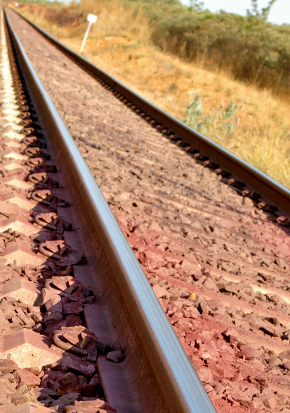Aurizon slows $6 billion push
 Aurizon's largest shareholder wants the rail and infrastructure giant to shelve its planned $6 billion West Pilbara Iron Ore Project.
Aurizon's largest shareholder wants the rail and infrastructure giant to shelve its planned $6 billion West Pilbara Iron Ore Project.
Aurizon has announced it will push back a series of development deadlines in order to wait out a slump in the iron ore price, but major shareholder Perpetual wants evidence of greater efforts.
Aurizon has been in talks with the other partners in the West Pilbara Iron Ore Project – Baosteel Resources and its subsidiary Aquila Resources, Korean steel giant POSCO and AMCI.
It says it remains committed to the technical and commercial feasibility study stage of the project, but has set new deadlines in a bid to cut costs while it works out if it can actually compete with other major Pilbara projects.
Perpetual investors own a 6.28 per cent stake in Aurizon, and say they want more surety for their investment.
“Management should be focused on delivering on cost out opportunities in the operating business, improving free cash flow and distributing this to shareholders,” Perpetual's head of Australian equities Paul Skamvougeras told News Corp reporters.
“Aurizon's strong balance sheet gives the company flexibility to pursue genuine growth opportunities when they arise [but] the West Pilbara Iron Ore Project is not one of them.”
In August, Aurizon said it was confident it could build the new deepwater port at Anketell Point and rail system in the West Pilbara for 20 per cent less than its $6 billion price tag, but with the iron price hit hard in the meantime, CEO Lance Hockridge now claims the economics of the project will be “very challenging”.
A decision on a definitive feasibility study will be made by the end of this year, dependent on what costs can be cut from the original estimate made in 2012, at the peak of the mining boom.
If Aurizon does undertake its feasibility study, the period of exclusivity for an infrastructure solution for the project has been extended until April 30, 2016.
Meanwhile, the deadline for Aurizon to provide its “indicative and non-binding” port and rail tariff for the project will now fall on November 30.
“Given the volatility in the iron ore price, I think giving themselves some more time is what they need to be doing,” said Deutsche analyst Cameron McDonald.
“It's still a lot of money to commit to a development.”
Analysts now expect Aurizon will create new capital management initiatives over the next 12 months.








 Print
Print